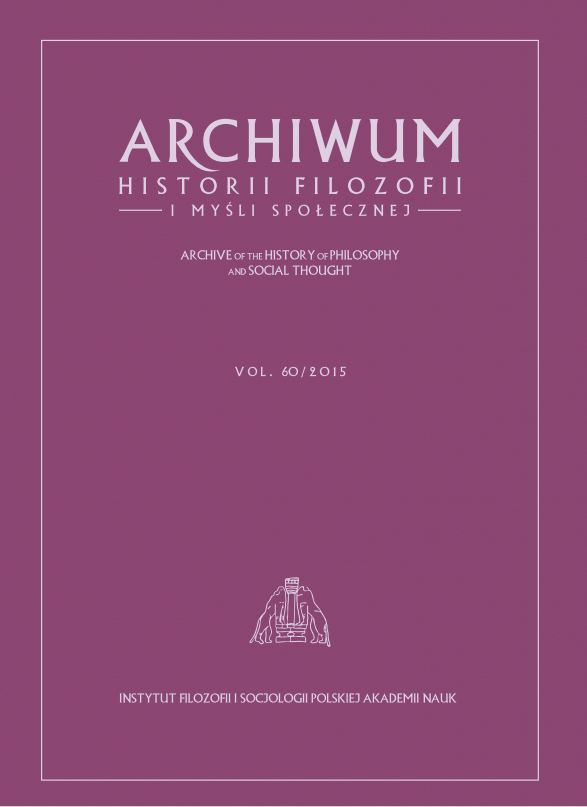Przedmiot poznania i definicji
The Object of Knowledge and Definition
The Approach to the Problem of Universals in Boethius and Alexander of Aphrodisias
Author(s): Tomasz TiurynSubject(s): Philosophy, History of Philosophy, Ancient Philosphy
Published by: Instytut Filozofii i Socjologii Polskiej Akademii Nauk
Keywords: Alexander of Aphrodisias; Boethius; history of ontology; history of epistemology; the problem of universals
Summary/Abstract: The paper presents the doctrine of universals formulated by Alexander of Aphrodisias, the most important and most influential ancient commentator on Aristotle. Point of departure for the paper is the specific approach found in the ancient debates on universals, namely their epistemological perspective. The paper shows that Alexander’s doctrine of universals is in fact just a part of his broader views on epistemology, science and the proper object of scientific cognition. An important achievement by Alexander is that he shows that the problems posed by Plato and Aristotle may be solved without positing any new kinds of entities – universal entities – and that it is enough to assume that individuals may be objects of scientific inquiry insofar as they participate in universal natures. The paper presents first Polish translations of key texts on universals by Alexander (such as Qu. I.3, Qu. II.14).
Journal: Archiwum Historii Filozofii i Myśli Społecznej
- Issue Year: 60/2015
- Issue No: 60
- Page Range: 25-47
- Page Count: 23
- Language: Polish

